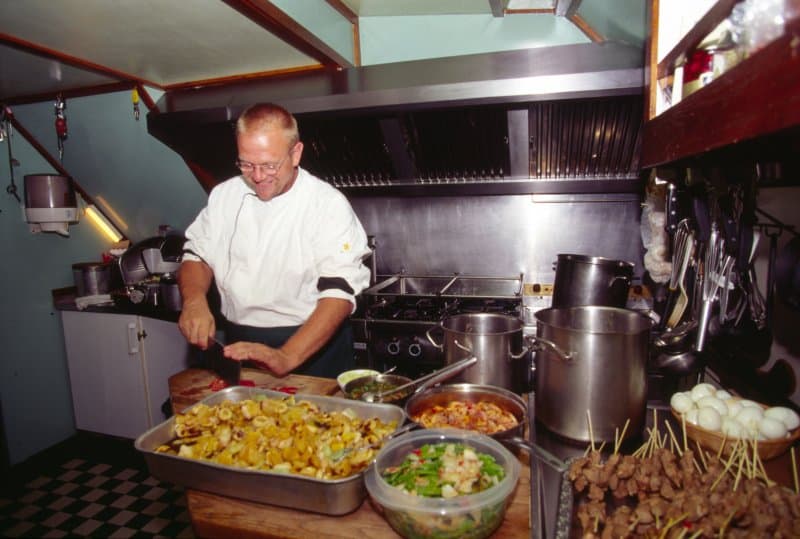
Having taken a job as vessel manager at a heritage harbour a few years ago I was described (behind my back) as a ‘jumped-up cook’. The speaker was, I fear, after the job that I had just taken, and meant the comment to be rather derogatory. ‘Jumped-up cook’ is a badge I wear with the utmost pride, as anyone who really understands the role of Ship’s Cook will know how taxing and complicated it can be.
Spending a few years victualling and cooking three hot meals per day, plus bread, plus night-watch snackery for a hungry crew of 15, on a budget of £5 per head per day (or less) stood me in very good stead for my future management roles. It was certainly harder than any other seafaring job I’ve had.
So I wanted to shine a light on this un-glamorous and often taken-for-granted position, and give a hearty pat on the back to all the ‘jumped-up cooks’ out there. If you can keep a crew fed and jolly with limited supplies and a workplace that jumps around under your feet you have my enduring respect.


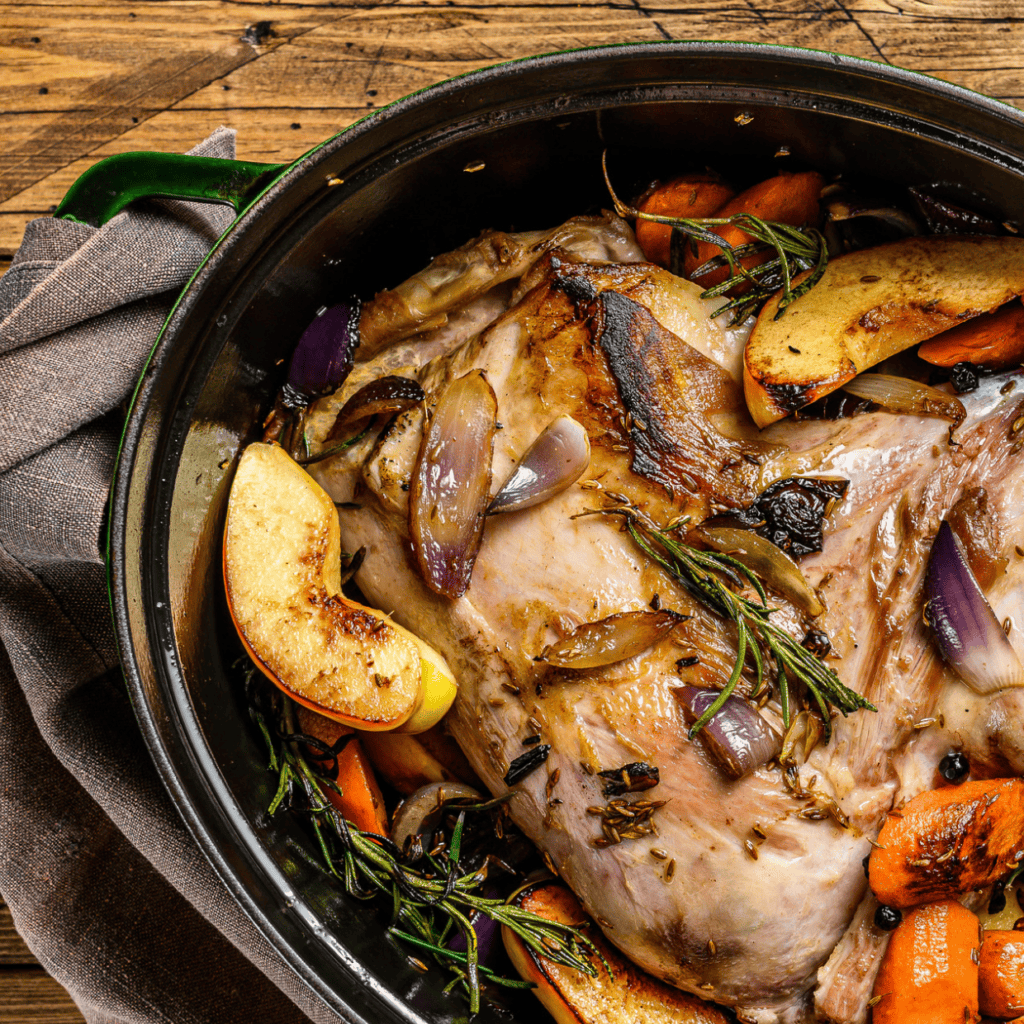
The Realities of Food Prep in a Rolling Galley
One of my crew-mates on the square-rigger brought their GoPro along for a trip across the North Sea. We mounted it securely to the top of the microwave one day and set it to record. We thought it would be funny to see the onions rolling around in what, to the camera’s eye, was a perfectly still galley (the one porthole being out of shot). He was called up on deck and I was shortly in the swing of lunch prep, forgetting all about it.
The resulting footage was priceless (if not very flattering!). I wish I still had a copy. It would do perfectly to illustrate the reality of the cook’s role on board.
The forecast hadn’t been particularly exciting, but things did start to get lumpy. I was making ‘sea-pizza’ (what I hope was a term of endearment from the crew for a kind of foccacia-topped-with-everything and a go-to for using up leftovers). Watching the video you’d see the onions start rolling around. The baking trays sliding gracefully up and down the worktop. Me, swaying like a happy drunk.
Then things get a bit bouncier. As far as the camera is concerned, the galley remains stationary, but some cheese jumps out of the box in my hand and makes a violent attempt at my head. I subdue it, wrestling it back into its box while a bowl of salad hops merrily into the sink. Then I kneel down by the fridge. I pause there for a moment, hand on the door, waiting for the ship to roll. I open the door.
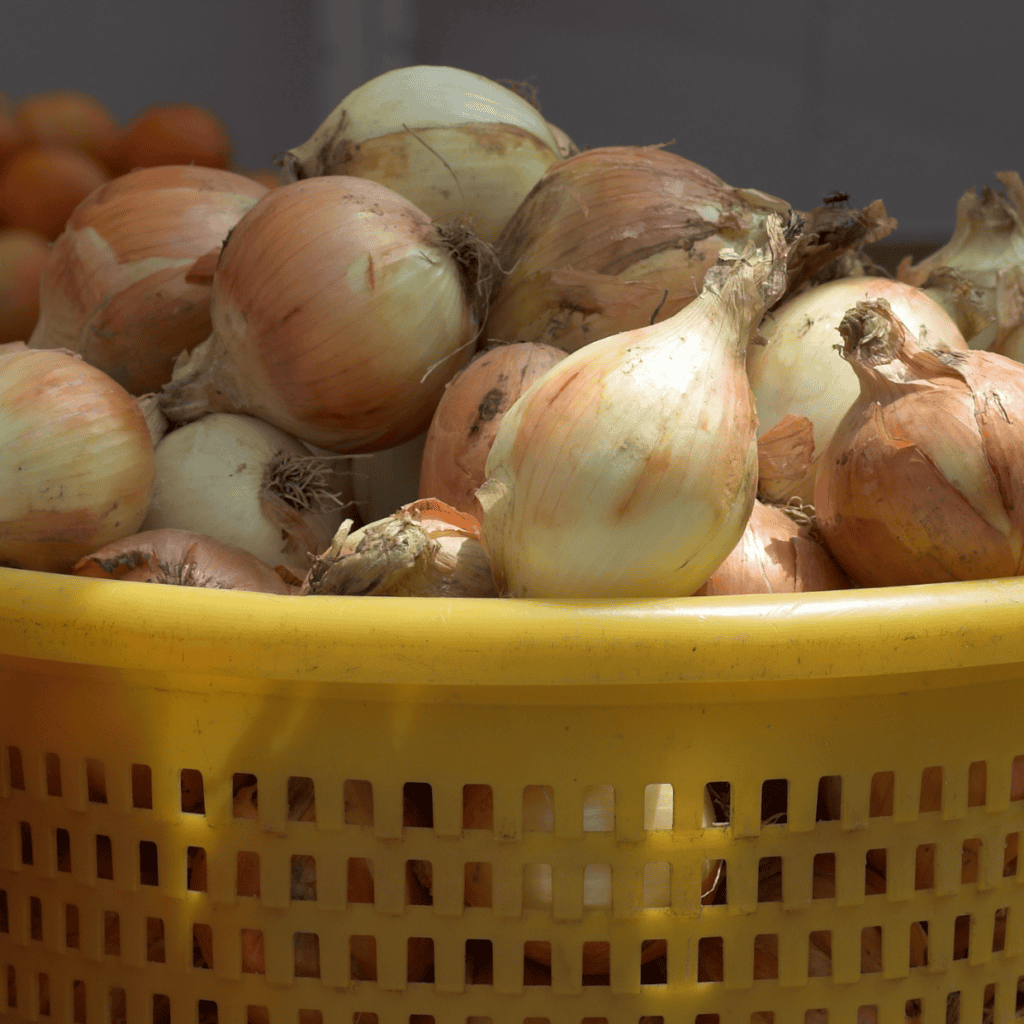
The onions in their basket stop rolling gently and do a sudden slam to the side. I lurch forward. The contents of the fridge appear to hover in mid air for a moment, before hitting the deck. A large pot of cream splits on impact, and starts painting the floor in wide, jerky strokes. Slipping on the cream I knock one tray of sea-pizza onto the floor. I end up on my belly, feet under the sink, one hand still on the fridge door, holding back an avalanche of food. Unidentifiable tubs and packets slide back and forth in an every expanding creamy mess.
The video is silent, but even a novice lipreader could, I think, have guessed what I was saying at that point. It was five minutes to lunchtime.
Cooking on board in tricky conditions is like a cross between Masterchef and Total Wipeout. You learn to love sticky-mats and hate round vegetables. Lasagnes and cakes must be tacked when the ship tacks, and soup needs a pan so high-sided you can barely see over it. Every single thing must be washed up and put away IMMEDIATELY or it’ll run off and have adventures of its own. It’s a work-out and a nightmare and certainly not for those prone to seasickness. It’s also hilarious.
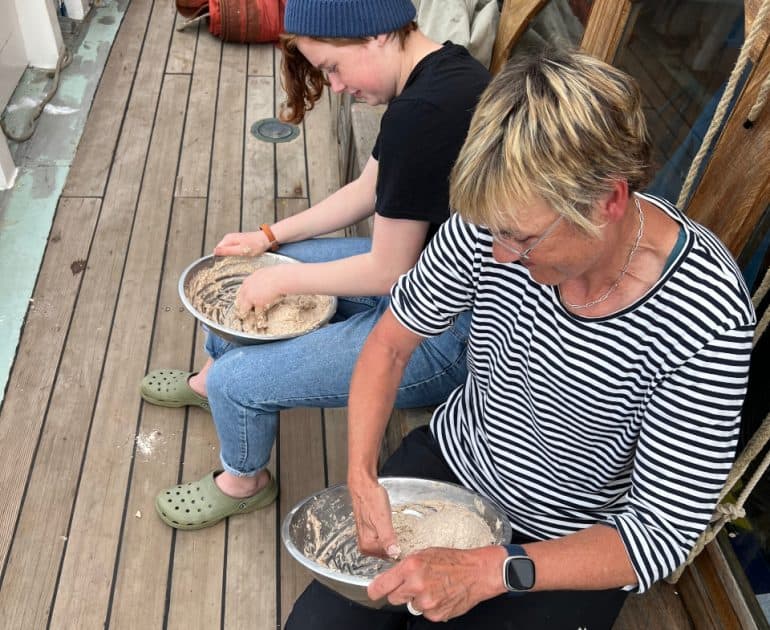

The Importance of Good Food on Board Ship
‘Hot and lots’ should be the motto of every ship’s cook. A good meal, particularly in trying conditions, is the cornerstone of happiness on a boat of any size. Give a cold wet guest a mug of soup and a freshly baked roll and they’re yours for life!
Food can make or break a sailing trip and can also make or break the atmosphere on board. However, there is absolutely no necessity for restaurant-grade fanciness. Simple, varied, tasty fare is the order of the day. The ability to produce this reliably and on time in all conditions is what makes an excellent Ship’s Cook. Weather can turn on a sixpence, off watches can get cut short, itineraries can change, but if everyone on board can trust that there’s hot food round the corner it makes the world of difference.
The punctuality of a meal is also paramount, especially when watch changeovers are usually planned around mealtimes. If a meal is late it means the off-coming watch can’t get to their bunks on time. This is a big deal when they may have to be up on deck again in a few hours. Every minute is precious.
Cooking on Ships Great and Small
The Cook’s role on board comes in many shapes and sizes. With a bigger crew and guest capacity, cooking can be a full-time job. This is especially true when a trip involves 24hr passage making, creating a need for night watch sustenance on top of three hot meals a day. Cooking on a ship like this is hard graft, but at least the role is clear and contained. Any necessary deck work is likely to be drills and mooring operations, rather than being a regular requirement. These positions are definitely cook first, sailor second, and tend to attract career chefs looking for an adventure.
Smaller vessels running with only a few crew members often double up on skills and responsibilities. In a two-person team a fairly standard split is Skipper/Engineer and Mate/Cook. Another common arrangement is to have a cook who is also a deckhand and/or watch leader. These ships’ cooks not only have to produce good food, but do it on top of navigational watch keeping, sail handling and guest training.
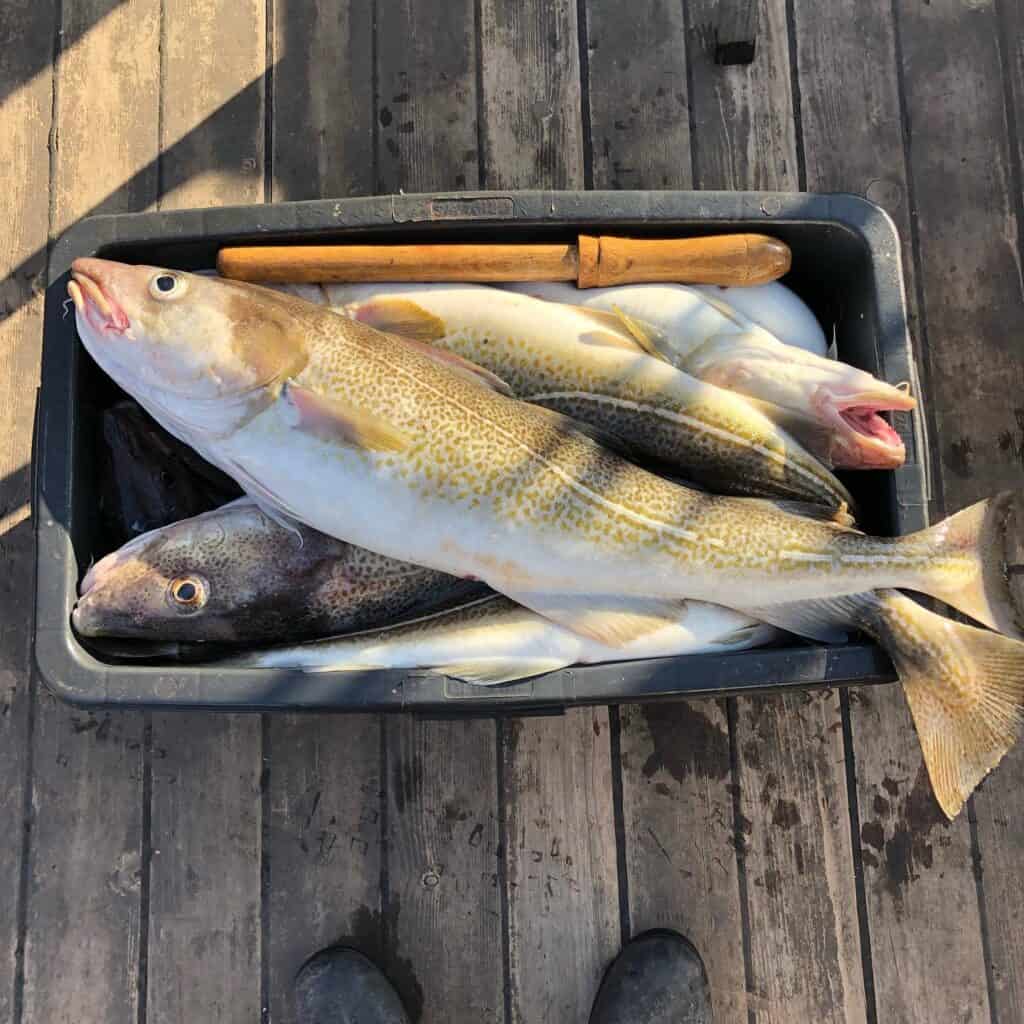
Victualling & Pre-Voyage Preparation
Meal-planning and provisioning for a long voyage are huge undertakings, and that’s before the Cook has even picked up a knife.
There must be enough of the right sort of grub to cover all dietary requirements and any eventualities, including the ship being caught out by poor weather, stuck at sea, or having to shelter for an extended period somewhere without access to groceries. The coffee must never, EVER run out.
On the other hand, there is very limited stowage space, particularly cold storage, and usually a very limited budget. Therein lies the great conundrum. Produce lots, produce variety, allow for delays of all sorts, but you have no money and nowhere to put anything…
Once you’ve worked out what it is you need, you have to get it. Either going to the supermarket (often alone, wrangling multiple trolleys Zorro-style around the aisles), or getting it delivered (also no mean feat when the ship will likely not have an address). If you wish to support local, independent food producers the task is even more time consuming, and time is not something you have on your side. Add to this the complexities of language barriers, transport and produce availability and it can become quite a palaver.

Therapist, Friend, Social Grease
In addition to the aforementioned challenges, there is another, rather unspoken part of the role. The ship’s Cook is (often) not assigned to a particular watch, but overlaps with everyone. They are in their own little cul-de-sac in the crew hierarchy… they produce warm and comforting sustenance… they work where the kettle is. For all these reasons and more, the Cook commonly becomes a kind of confidante for the crew. They are someone neutral with whom to discuss cross-watch politics or brooding unease with the officers.
Managing the galley-confessional takes tact and a light touch. If done well, however, it can help grease the wheels of harmony on board. Not something to be sniffed at on a long-haul voyage where space is tight, privacy non-existent and tensions are ripe for the tightening.
What Are Your Experiences?
We’d love to hear about your experiences. Have you got an entertaining story of cooking at sea? Have you sailed with a particularly wonderful ship’s Cook? Get in touch and help us celebrate the great feeders out there.



